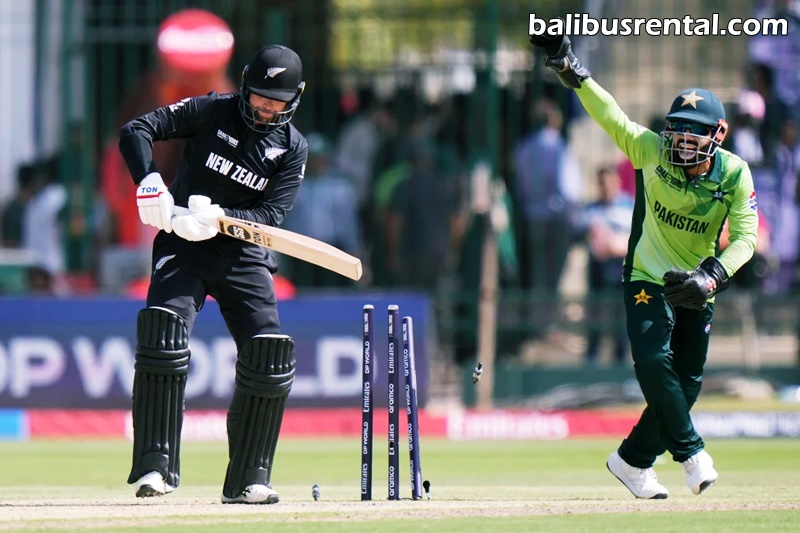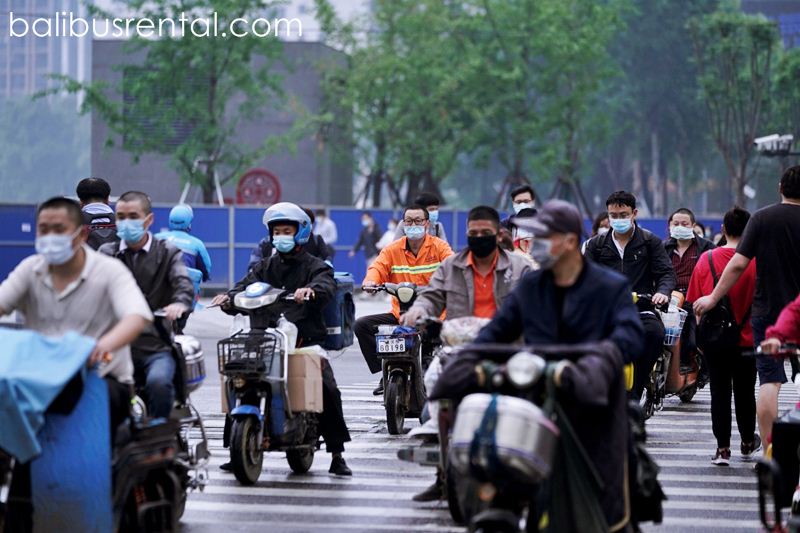Monday | February 24, 2025
Karachi – Jet fighters soared over a packed stadium in southern Pakistan, painting the sky with the green and white of the national flag, adding a dramatic flourish to a long-awaited sporting spectacle.
The National Stadium in Karachi erupted with cheers as the two teams took the field, marking the start of the Champions Trophy—a tournament cricket-loving Pakistan hopes will solidify its return to the international stage.
For years, Pakistan was sidelined from hosting major cricket events due to security concerns, following a deadly 2009 attack on the visiting Sri Lanka team. Islamist militancy and terror threats kept international teams away, leaving local fans yearning for top-tier cricket on home soil.
Now, that exile is over. Cricket powerhouses such as Australia, Bangladesh, England, New Zealand, and South Africa have arrived for three weeks of thrilling competition, igniting excitement across the country.
Security in Karachi was at its highest for Wednesday’s opening match between Pakistan and New Zealand. Snipers took positions on rooftops along the routes to the stadium, while commandos and SWAT teams manned checkpoints throughout the city.
Despite enduring hours under the scorching sun while navigating security barriers, Farah Qadri described the experience as “surreal.” Witnessing the tournament’s opening game made it all worthwhile.
“There were people from all walks of life, huddled together, cheering, chanting, and dancing nonstop,” she told CNN.
The Champions Trophy is “a huge positive for the entire country,” said Basit Ali, 36, who watched the opening match from a teashop in Peshawar near the Afghan border.
“I pray that Pakistan successfully defends its title and brings joy to the nation.”
Cricket is almost a second religion in Pakistan, with national team superstars adorning billboards and their performances sparking either immense pride or deep frustration among fans. Yet, the last time Pakistan hosted an international tournament was in 1996.
For an entire generation in this cricket-obsessed nation of 220 million, the thrill of welcoming the world’s best players has remained a distant dream—until now.
Excitement mixed with nervous anticipation for Farees Shah, a cricket podcast host who joined the throng of fans in Karachi’s stadium on Wednesday.
“It’s like being the biggest party animal out there, but after ages, you’re finally hosting the party. You just want to make sure everything goes smoothly,” he told CNN.
But in Pakistan, events off the cricket pitch rarely do.
Former prime minister—and World Cup-winning cricketer—Imran Khan is currently imprisoned on corruption and national security charges, which he claims are politically motivated to prevent his return to power.
Meanwhile, the country’s economy teeters on the edge, dependent on IMF bailouts, while critics say the powerful military remains deeply entrenched in every aspect of governance.
Violence is an ever-present threat. A long-running Taliban insurgency has claimed tens of thousands of lives, and authorities are also battling a bloody separatist movement in the resource-rich southwest.
Cricket, too, has not been spared.
In 2009, militants ambushed Sri Lanka’s cricket team as they traveled to a match in Lahore, spraying their bus with bullets. The attack killed eight people—six policemen and two civilians—while several visiting players were injured, sending shock waves through the cricketing world.
Pakistan was subsequently stripped of its hosting rights for the 2009 Champions Trophy, and a later militant attack led to its exclusion from co-hosting the 2011 World Cup.
Now, hosting the Champions Trophy is a “milestone moment” for Pakistan, said Mohsin Naqvi, chairman of the Pakistan Cricket Board (PCB).
The tournament is an “opportunity to reaffirm Pakistan’s status as one of the most passionate and influential cricketing nations, fully capable of staging multi-nation tournaments at the highest level,” he told CNN.
Authorities are leaving nothing to chance.
The national airline has arranged special flights to transport visiting teams across the country, while every player and match official has been granted “state guest status”—the equivalent of being treated as a visiting head of state.
The elephant in the room
There is, however, one major hiccup.
India—the world’s top-ranked cricket team and Pakistan’s fiercest rival—is skipping the tournament.
Citing “security reasons,” Indian cricket officials have refused to travel to Pakistan, instead opting to play their matches in the United Arab Emirates.
The decision has dampened spirits globally and infuriated Pakistani fans, robbing the hosts of the chance to face their biggest rival on home soil.
Since gaining independence from Britain in 1947, nuclear-armed India and Pakistan have fought three wars and imposed strict restrictions on trade and travel, despite their deeply intertwined history, culture, and shared passion for cricket.
Matches between the two nations are among the most intense rivalries in sports, drawing massive audiences and lucrative sponsorships. An estimated 400 million people watched Pakistan defeat India in the 2017 Champions Trophy final—more than three times the viewership of the latest Super Bowl, which had around 127 million.
PCB chairman Mohsin Naqvi called India’s absence “a loss for spectators, broadcasters, media, and the tournament itself.”
“But it is also a missed opportunity for Indian players to experience the warmth, love, and hospitality that Pakistan has always extended to visiting teams,” he added.
CNN has reached out to India’s cricket board for comment.
For cricket fan Basit Ali in Peshawar, the most anticipated match of the tournament remains Pakistan’s showdown with India—even if it takes place in Dubai.
“The real excitement will be when Pakistan faces India. I can’t wait for that!” he said.
Farees Shah, the podcast host, echoed similar sentiments.
“I want nothing more than for Pakistan cricket to do well,” he told CNN. “But it’s equally important to me that the tournament runs smoothly.”




